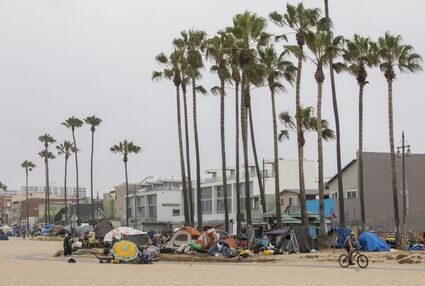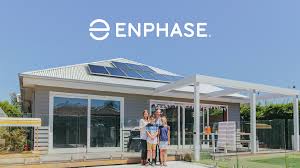Venice in Crisis Over Homeless
Approaches differ, but agreement is rising that something needs to be done.
August 19, 2021
By Bloomberg News.
Venice Beach is in a crisis over what to do about homelessness, reports Bloomberg News. There is growing consensus among leaders that something needs to be done.
While their approaches differ, says Bloomberg, Westside City Councilman Mike Bonin and Villanueva agree that Los Angeles is in a crisis.
"Despite unprecedented recent investments by the city, including building temporary shelters and new tenants-rights protections to prevent Angelenos from slipping into homelessness, 45% more people were experiencing homelessness in the city in 2020 - or 41,000 in total - than in 2016, according to L.A. Controller Ron Galperin. (Countywide, the figure is 66,400.) Since the homelessness count was conducted before the pandemic, more people are likely now living on the streets, and others could join them when state and federal eviction moratoriums end, on Sept. 30 and Oct. 3, respectively," says Bloomberg.
Homelessness in L.A. is a very visible concern - three quarters of its homeless population lives unsheltered, says Va Lecia Adams Kellum, chief executive officer of St. Joseph's, a Venice social services nonprofit. And their ranks are continuing to swell: While 207 people may gain housing every day through different outreach programs, 227 are falling into homelessness at the same time, according the Los Angeles Homeless Services Authority.
"I don't know that there is a way to manufacture patience, or if there is a way to talk and try to reason people into patience," said Bonin. "This is a very visceral issue."
This problem isn't new to Venice or Los Angeles, but the citywide escalation of anti-homelessness enforcement and rhetoric this year is extraordinary, says Theo Henderson, a journalist and creator of the podcast "We the Unhoused." Unhoused people are often vilified in the media as mentally ill, dangerous and resistant to services, said Henderson, who doesn't have a permanent home. The resources they're offered amount to little more than "carceral" options, and their attempts to stabilize their lives are frequently disrupted by ever-shifting policies and police sweeps, making them feel anxious and at-risk. The experience is like "being on a rollercoaster," he said. "You're presented one view, then all of a sudden it plunges, and it has you screaming all along the way, trying to make sense of it all."
Venice serves as a particularly striking stage for this ongoing drama. The neighborhood has for decades been shifting from bohemian to bourgeois: Housing and home prices have skyrocketed, with a median sale price of nearly $2.2 million, and startups and tech offices have taken over commercial space. As small bungalows have transformed into larger McMansion-style homes and Snapchat offices, the area's housing supply has plunged.
The only solution, homelessness advocates have long said, is building more affordable and supportive housing in the area, and creating a pipeline of services to provide a path to a more permanent dwelling. But proposals to accomplish that have consistently been met with resistance from residents. Funding from Proposition HHH, the $1.2 billion bond measure approved five years ago to create some 10,000 new units citywide, is projected to produce just 1,363 units by 2022, based on late 2020 projections. Many local complaints center on the belief that Venice is a "staging ground" for such facilities, and the cost of the housing in such a wealthy, expensive area puts too big a drain on public funds.



















Reader Comments(0)